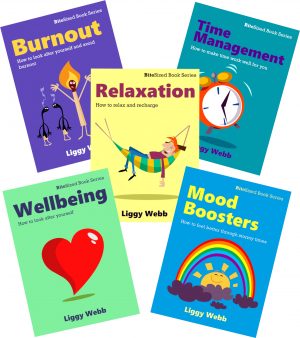A certain amount of pressure and stress is inevitable in everyone’s lives, especially as we find ourselves living in the busy ages with so much relentless change and disruption. It is also important to bear in mind that when there is too much elevated stress for a prolonged period of time this can take its toll on your health and may even lead to burnout.
Building relaxation time into your life will help you to keep your stress levels down and look after your overall well-being. Too much work and not enough time out for yourself can result in physical and mental health problems. Winding down and relaxing is essential if you want to live a more productive, happier and healthier life.
Understanding your own unique relationship with stress is fundamental in terms of your personal well-being and mental health. There are various ways that you can help yourself to manage your experience with stress better and here are five suggestions:

1. Plan in time to recharge
Imagine you are a car. You will only get so far on the fuel that you have in your tank. If you don’t stop along the way to refuel you will conk out! It is so important to create moments of sanctuary within your day to replenish your physical and mental energy.
Setting aside time for yourself within your busy schedule is all about self-care and establishing healthy boundaries. Making your own personal well-being your biggest priority has nothing to do with being selfish and no one needs to feel guilty about this. It is the most responsible approach to living a healthy and productive life.
When you plan your day, it is important to allocate time for relaxation and actually put this firmly on your to-do list. Getting outside at lunchtime for a relaxing stroll or even just taking a few minutes to do some stretching and breathing exercises can make all the difference. If you don’t set the time aside however, you may not get around to doing it, so it pays to be organised and disciplined about this.

2. Set personal boundaries
Personal boundaries are essential to healthy relationships and managing unnecessary stress. Having healthy boundaries is about knowing and understanding what your limits are. To set healthy boundaries you need to consider what you can tolerate and accept and what makes you feel uncomfortable or stressed.
Boundaries are a sign of a healthy relationship with yourself and a sign of self-respect. Putting yourself first also gives you the energy, peace of mind and positive outlook to be more present with others and be there for them. It is essential to give yourself the permission to set boundaries and work to preserve them.

3. Be great with time management
Great time management will give you more control of your energy and stress levels. It will help you to focus on activities, people and projects that make the biggest impact in your life.
Getting on top of your time management will also assist you in achieving your goals in less time and with less effort, whilst creating a better life balance. The following pages offer some simple tips and suggestions for improving your time management skills.

4. Learn how to prioritise time well
Identifying the difference between what is important and what is urgent will help you to be less reactive and more responsive. It will also enable you to overcome the natural tendency to focus on unimportant urgent activities.
Important activities have an outcome that will lead you towards achieving your goals. Urgent activities demand immediate attention and are often associated with achieving someone else’s goals. A useful tool that can help you with this is known as “The Eisenhower Matrix” and is well worth looking into.

5. Sleep well
Lack of good quality sleep can affect your memory, judgment and mood. Stress levels can increase when the length and quality of sleep decreases. Sometimes you may find yourself lying in bed worrying and feeling anxious, which can make it almost impossible to relax enough to fall asleep.
Poor quality sleep can take its toll on both your physical and mental health so it is essential to understand how to invest in quality sleep, which will play a big part in helping you to manage your stress levels really well.
-
Product on sale
 BiteSized books – Stress Kit collectionOriginal price was: £14.95.£9.99Current price is: £9.99.
BiteSized books – Stress Kit collectionOriginal price was: £14.95.£9.99Current price is: £9.99.
For updates for future blogs, free webinars and various other useful resources please do join my newsletter.













